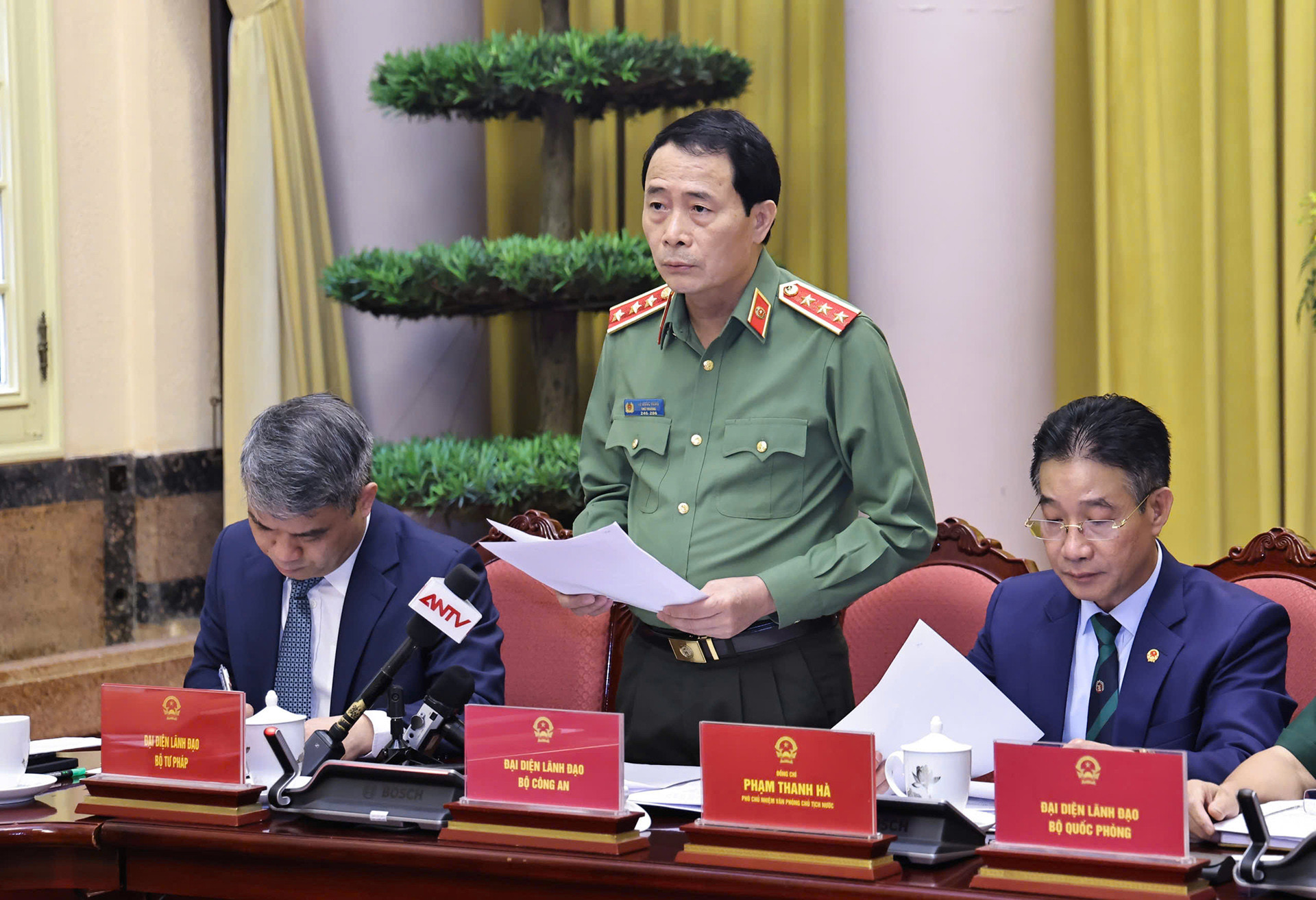During a press conference on July 3, the Office of the President announced the promulgation of new laws recently passed by the National Assembly and its Standing Committee.
Senior Lieutenant General Le Quoc Hung, Deputy Minister of Public Security, highlighted key amendments to the Penal Code. The most notable change is the abolition of the death penalty for the following crimes: activities aimed at overthrowing the people's administration, espionage, destruction of national infrastructure, production and trade of counterfeit medicine, illegal drug transportation, embezzlement, bribery, and crimes against peace or instigating aggressive war.
For embezzlement and bribery, new provisions aim to facilitate asset recovery and incentivize cooperation. Life imprisonment sentences can only be reduced if offenders have voluntarily returned at least three-quarters of the misappropriated assets and actively cooperated with law enforcement in exposing crime or achieving significant merits.
Hung noted that this reform aligns with the Party’s direction to reduce the use of capital punishment. The 1985 Penal Code included 44 death-eligible offenses; this number has now dropped to just 10. The move also reflects global trends: out of 193 UN member states, only around 50 still retain the death penalty in their laws or practice.
Handling pre-July 1 death sentences
Transition rules are particularly important for offenders sentenced to death before July 1, when the new law takes effect.
If a person was sentenced to death for any of the abolished offenses before July 1 but the sentence has not yet been executed, the death penalty will not be carried out. Instead, the Chief Justice of the Supreme People's Court will convert the sentence to life imprisonment.
This also applies to cases involving individuals with late-stage cancer or those meeting revised sentencing criteria - such as drug-related offenses where the convict is not a ringleader and lacks aggravating factors - even if the amount of drugs involved exceeded thresholds defined in the updated law.
However, these commutations still require the convict to meet strict cooperation and restitution standards, particularly in bribery or embezzlement cases.
The amended law also doubles financial penalties for 24 offenses, mostly in areas like counterfeiting, environmental crimes, food safety, and corruption. These crimes often yield enormous illicit profits, and previous penalties were deemed insufficient to deter offenders.
Hung explained that the increase in fines reflects economic changes since 2015, including a 2.04-fold increase in base salary and a 2.02-fold rise in average income.
Tran Thuong
